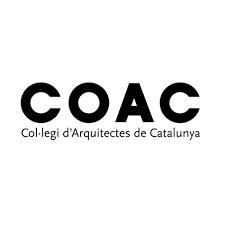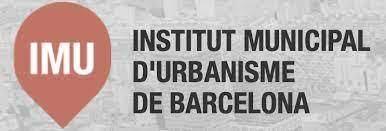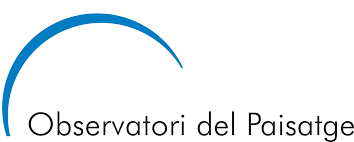Master's Degree in Urban Design for Healthy Cities
Reasons to study this master’s degree
- Unique
Learn the principles of urban design for healthy cities in Barcelona, through the eyes of the Mediterranean urban culture and lifestyle. - Innovative approach
This master's degree programme is innovative not only in its focus on urban health but also in its cross-disciplinary and integrative approach. The master's programme covers four major dimensions to be considered within urban health design: social, cultural, environmental, and economic. This cross-disciplinary approach is not only intellectually enriching, but it will also be very useful in your future professional life when dealing with professionals from different fields involved in urban planning and design in a city. - Project-based learning
Learnings from environmental, social, cultural and economic dimensions are applied in a cross-disciplinary workshop that combines smart technologies and nature-based solutions from a holistic approach in a real case study in Barcelona. This workshop takes place over the course of the programme, with personalised weekly reviews. - Nurturing multicultural environment.
Our programme has a prestigious roster of both local and international lecturers with diverse expertise and professional backgrounds (academia, public administration, private firms, NGOs). Our students also come from different countries around the world, thus generating an exceptionally international and enriching learning environment and a valuable professional network. - High employability
Creating healthier and more sustainable urban environments is one of the Sustainable Development Goals (SDGs) included in the 2030 Agenda for Sustainable Development. Therefore, this is a highly sought-after skill set by public administration, other organisations, and architecture firms.
Hear it from them
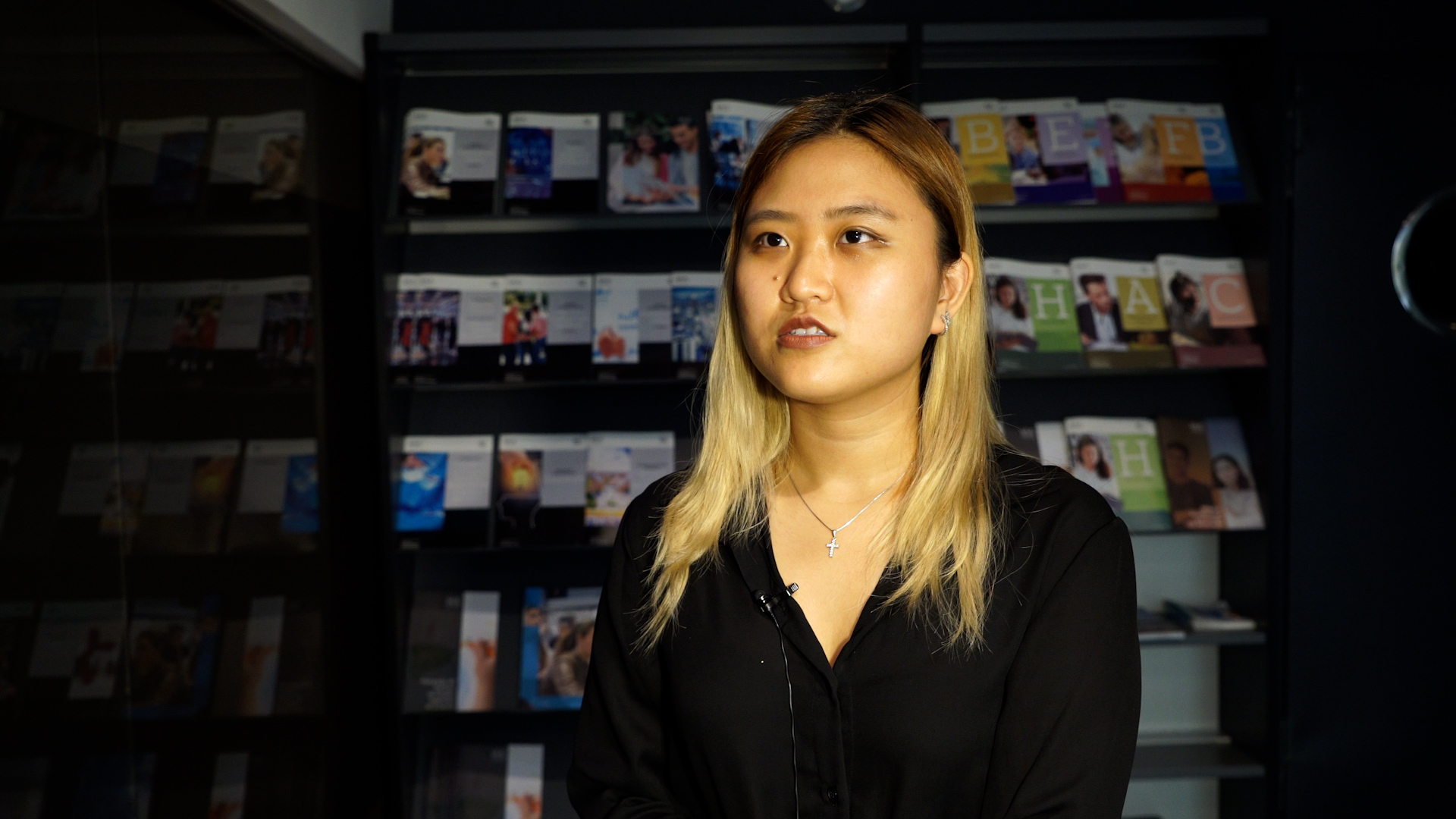
This master’s degree taught me the importance of urban design in evaluating the health system, which is an aspect we can justify using in every project. In all our projects, we can include a healthy city as one of the significant indicators. No other master’s degree provides this.
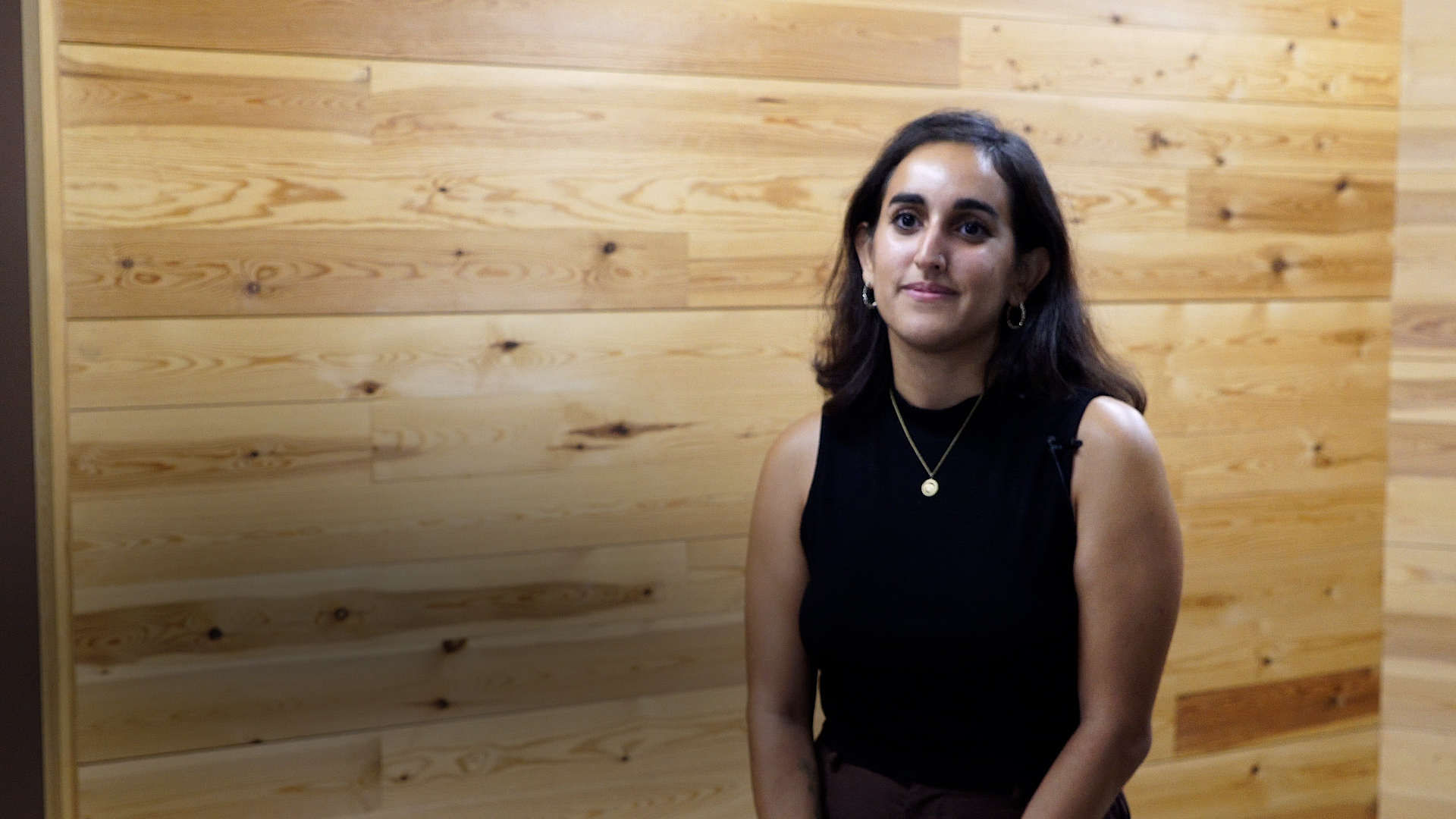
This master’s degree has brought to me a new perspective on the world around me, especially the city of Barcelona. I look at the city of Barcelona in a different way and I always look at every place that I go with a new pair of eyes. I think about questions like ‘How could this place be better? How is it working? How isn't it working?’
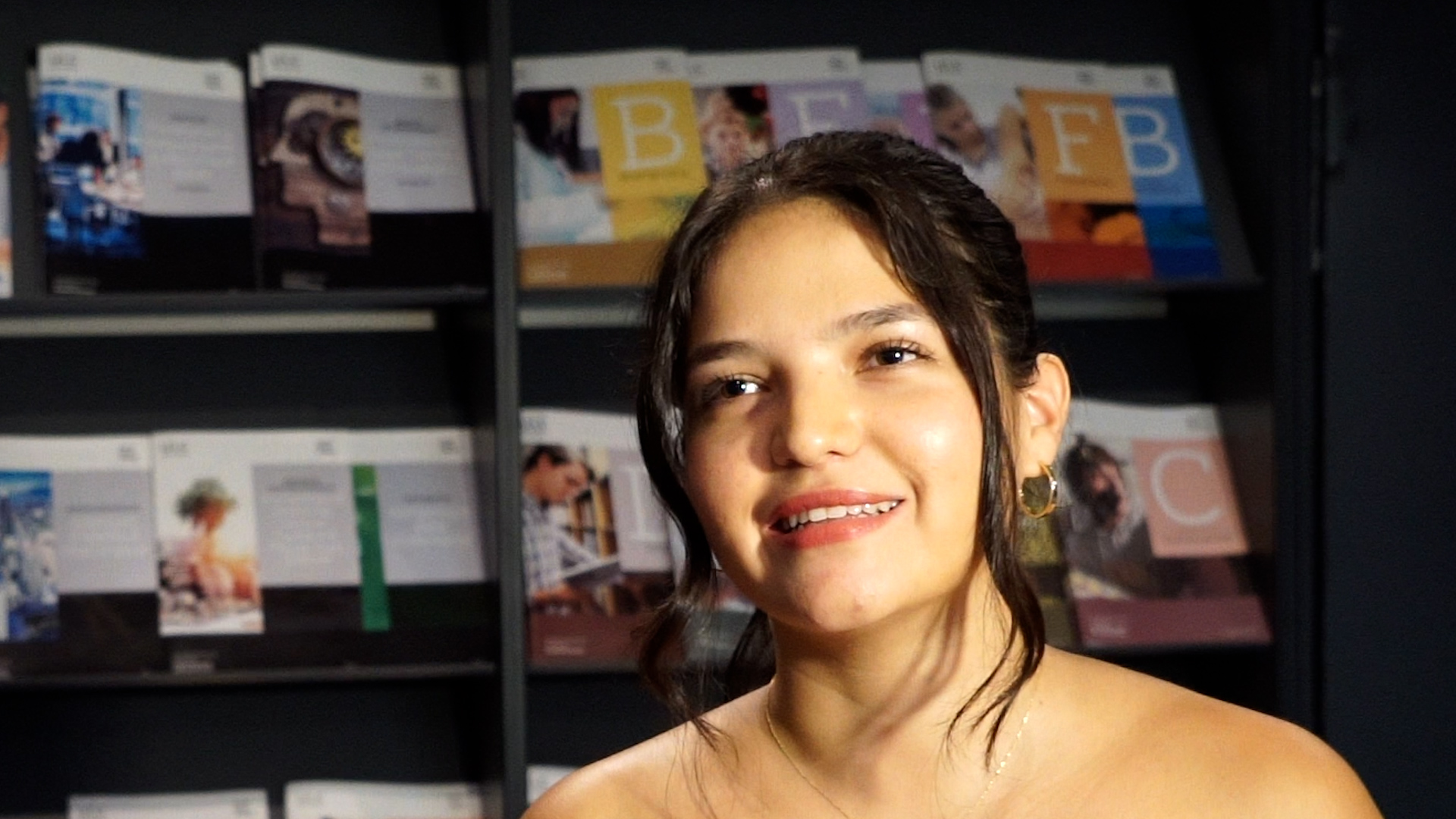
I would recommend this master’s to people who are interested in design and architecture. I feel that this is an important area which we should develop in the future. I feel that this master’s is very focused on the 21st century, which I think is very important.
Partners
About this master’s degree...
Increasing concern about the environmental and health emergencies have triggered a wide debate on the need to integrate public health and urban design and planning to mitigate climate change, support sustainable living and improve people's well-being. This master’s degree programme seeks to respond to this global challenge by placing citizens at the heart of urban transformation projects.
Nowadays, a wealth of research focusing on the impact of environmental, social, cultural, and economic factors on urban health is available. However, breaking down knowledge silos and providing integrative urban design solutions adapted to each local context is still lacking. The general goal of this master’s degree programme is to fill this gap by creative problem solving in real life scenarios. For this purpose, the theoretical and practical principles of well-being and sustainability are combined and put into practice in Barcelona.
Barcelona offers multiple opportunities to learn about urban design and planning linked to health and sustainability. Practitioners in charge of successful experiences of urban health will participate in the course.
Presentation
Achieving healthier and more sustainable urban environments is one of the SDG included in the 2030 Agenda for Sustainable Development. Combining health and sustainability criteria in urban design and planning is needed to mitigate climate change and improve people's well-being. This master’s degree programme seeks to respond to this global challenge by placing citizens at the heart of urban transformation projects.
Nowadays, a wealth of research focusing on the assessment of the impact of environmental factors on public health is available. However, a structured body of knowledge on concepts, tools and methods to support urban design solutions adapted to each context is lacking. The general goal of this master’s degree programme is to fill this gap by exploring and discussing specific solutions based on real cases. Barcelona offers multiple opportunities to learn about urban design and planning linked to health and sustainability. Practitioners in charge of working on significant examples of this will participate in the course.
Overview
Although public health and urban planning share common objectives, they have remained independent disciplines over the past century. Increasing concern about the environmental and health emergencies have triggered a wider debate on the need to integrate both fields, and the combination of urban design and health has gained ground in recent years.
Against this backdrop, the Master’s degree in Urban Design for Healthy Cities offers a programme aimed at architects and urban planners, both recent graduates and experienced professionals, who want to expand their knowledge in sustainable urban design while focusing on the well-being of citizens.
The principles of well-being and sustainability are studied here in a combined way, in theoretical and practical blocks.
Objectives
- To provide a conceptual and methodological basis for planning and designing urban systems based on the principles of well-being and sustainability.
- To provide knowledge on metrics, tools and methods from areas such as ecology, engineering, urban planning, urban design, urban geography, psychology, sociology and economics, to address the transition towards healthier urban environments.
- To provide knowledge on the scientific evidence available about the environmental, social, cultural and economic factors that influence people’s health and well-being.
- To provide knowledge on a wide array of emblematic healthy urban actions –from policies and regulations to planning and design.
- To teach students skills to help them to plan, execute and communicate strategic urban transformations aimed at enhancing public health and well-being.
In-depth subject area topics 2021-2022
Metrics, tools and methods for planning and designing healthy and sustainable built environments, will be elicited through literature review –scientific evidence-, and analysis of case studies at all scales –from policies and regulations to planning and design- related to each dimension. This content reviewed in the seminars will then be applied in a workshop (focusing on the transformation of the built environment in a specific case study) using a holistic approach. The mains topics proposed for this first edition are:
- Environmental Dimension: (1) Environmental Epidemiology: Air Pollution, Noise, Green Spaces, Temperature. (2) Mobility: Sustainable Transport Systems, Transport Planning, Infrastructure and Cities. (3) Energy and Waste: Materials and Energy Flows, Waste Collection, Energy Transition. (4) Food and Water: Peri-urban Agriculture, Food/Water Planning and Governance, Climate/Food/Water Emergency. (5) Nature-Based Solutions: Blue and Grey Infrastructure.
- Social Dimension: (1) Physical Activity in the City (Benefits/Problems), The City as a Gym. (2) Safety Perception: Determinants of Fear, Effects of Fear in Public Space. (3) Empowerment and Social Capital: Empowerment Theories and Urban Transformation, Social Capital in Urban Areas. (4) Environmental Justice: Gentrification and Health in Global Cities, Health Effects in Gentrified Neighbourhoods. (5) Everyday Urbanism: Cooperative Urban Transformation Processes. (6) Citizen Science: Evaluation of Citizen Science Initiatives, Co-Designing Citizen Science Projects, Citizen Science and Urban Sustainability.
- Cultural dimension: (1) Place Attachment: Place Meanings and Living Experience, Applications of Place Attachment and Place Identity to Urban Planning Processes. (2) Urban Sense of Place: The Modern Urban Sense of Place, From Genius-Loci to Placelessness, Urbanalisation, Sense of Place after Urbanalszation. (3) Landscape Values and Development: From Landscape Characterisation to Landscape Management, Planning the Landscape with Communities, Planning Ordinary Landscapes. (4) Heritage in Urban Intervention: Mapping Heritage, Cultural Landscapes Recovery, Cultural Tourism, Cultural Heritage and Cooperative Processes. (5) City and Identity. Identity in Designing New Cities, Designing Proximity, Intermediate Landscapes; Pre-Urban Patterns.
- Economic dimension: (1) Economic Evaluation: Efficiency in Decision-Making, Environmental Valuation Techniques, Cost-Benefit Analysis. (2) Sustainable Economy: Circular Economy, Sharing Economy, Local Economy.
Skills and learning outcomes to be acquired by the student
- Knowledge on key topics (healthy cities, sustainable cities and planetary health).
- Knowledge on research and dissemination tools (quantitative and qualitative analysis methods, and e-communication skills).
- Knowledge on the determinants of health and well-being in urban environments, including four dimensions: environmental, social, cultural and economic.
- Knowledge on the tools and methods tested by practitioners to increase good health and well-being among citizens.
- Ability to apply this knowledge in real urban scenarios.
Student competences
- Holistic urban analysis skills based on sustainability and health principles.
- The ability to develop surveys and plans to mitigate the impact or maximize the benefits of the environmental, social, cultural and economic factors that affect people’s health and well-being.
- The ability to incorporate environmental, social, cultural and economic dimensions into the design of healthy urban solutions.
- The ability to undertake the supervision and coordination of urban projects for healthy cities.
Prospective students
This programme is aimed at university graduates from the following areas:
- Main recipients: architects, urban designers, urban planners, landscape designers, civil engineers, students from all disciplines involved in the design, management, physical planning of the city.
- Secondary recipients: environmental scientists, urban geographers, students from all disciplines who (despite the fact they do not intervene directly in the physical transformation of cities) generate the urban cartographies that are necessary to transform them.
Teachers
- Natalie Mueller - Postdoctoral researcher at IS Global (Barcelona Institute for Global Health)
- Carlota Saenz De Tejada - Postdoctoral researcher at IS Global (Barcelona Institute for Global Health)
- Carolyn Daher - Coordinator of the Urban Planning, Environment and Health Initiative at IS Global (Barcelona Institute for Global Health)
- Madalen Gonzalez - Urban planning architect. Associate lecturer at ETSAV-UPC and UIC Barcelona School of Architecture
- Judith García Aymerich - Epidemiologist for the Respiratory Diseases Programme at IS Global (Barcelona Institute for Global Health)
- Xavier Garcia Acosta - Researcher in urban sustainability at the Barcelona Institute of Regional and Metropolitan Studies (IERMB)
- Apen Ruiz – Anthropologist. Lecturer at UIC Barcelona School of Architecture, the Universitat Oberta de Cataluya and the Institute for the International Education of Students
- Miriam Giordano - Founder and director of the communication consultancy Labóh
- José María Martínez - Lecturer for the Department of Basic Sciences at UIC Barcelona
- Adrián González Márón - Lecturer for the Department of Basic Sciences at UIC Barcelona
- Mireia Gascon - Assistant lecturer for research at IS Global (Barcelona Institute for Global Health)
- Javier Ortigosa - Urban planner for the Master Plan Drafting Service at the Metropolitan Àrea of Barcelona (AMB)
- Marta Vila Gambao - Waste specialist at Barcelona Regional
- Cynthia Echave Martínez - Project manager and senior researcher for the Euro-Mediterranean Economists Association
- Aleix Coral Alcolea - Engineering project manager at Barcelona Regional
- Marc Montllédo Balsebre - Director of the Environmental Projects and Energy Department at Barcelona Regional
- Sònia Callau Berenguer - Head of the Agricultural Spaces Support Unit for Barcelona Provincial Council
- Albert Sorolla Edo - Technical director of Naturalea, a company specialising in bioengineering for landscape restoration
- Sergi Valera - Senior lecturer for the Department of Social Psychology and Quantitative Psychology at the University of Barcelona (UB)
- Riccardo Valente - Postdoctoral researcher in the Department of Geography at Rovira i Virgili University
- Rubén David Fernández - Member of the Research Group on Social Interaction and Change (GRICS) at the University of Barcelona
- Margarita Triguero-Mas - Research coordinator in the Department of Urban Studies and Planning (DPSP) at MIT and the Barcelona Laboratory for Urban Environmental Justice and Sustainability (BUNOJ) of the UAB-ICTA-IMIM
- Helen V. S. Cole - Postdoctoral researcher at the Barcelona Laboratory for Urban Environmental Justice and Sustainability (BUNCEJ) of the UAB-ICTA-IMIM
- Konstantina Chrysostomou - Social architect. Working partner of the cooperative Estel
- Arnau Boix i Pla - Architect. Inclusive design. Working partner of the cooperative Estel
- Marc Deu Ferrer - Urban architect. Urban pedagogy. Working partner of the cooperative Estel
- Alba Domínguez Ferrer - Urban architect. Town planning and everyday life. Working partner of the cooperative Estel
- Jaume Piera - Senior scientist at the Institut de Ciències del Mar (ICM-CSIC)
- Sonia Liñán Moyano - Researcher at the Institut de Ciències del Mar (ICM-CSIC)
- Karen Soacha Godoy - Researcher at the Institute of Ciències del Mar (ICM-CSIC)
- Cristina O'Callaghan - Health studies lecturer at the UOC and associate researcher at ISGlobal (Barcelona Institute for Global Health)
- Francesc Múnoz - Senior lecturer and director of the Observatori de la Urbanització de la Universitat Autònoma de Barcelona (UAB)
- Pere Sala - Director of the Landscape Observatory of Catalonia
- Joaquim Sabaté - Lecturer for the Department of Urbanism and Regional Planning at the ETSAB (UPC)
- Meewha Cho - Lecturer for the Master's degree in Urban Planning at the ETSAB (UPC)
- Melisa Pesoa - Associate lecturer at the Department of Urbanism and Regional Planning at the ETSAB (UPC)
- Cynthia Pérez - Member of the IHTT, the Instituto Hábitat, Turismo y Territorio (UMA-UPC)
- Javier Rocamonde - Lecturer and researcher for the Department of Urbanism and Regional Planning at the ETSAB (UPC)
- Andri Tsiouti - Lecturer and researcher at the Department of Urbanism and Regional Planning at the ETSAB (UPC)
- Jelena Prokopljevic - Lecturer at UIC Barcelona School of Architecture and member of the ArquinFAD Board of Directors
- Marta Trapero-Bertrán - Lecturer for the Department of Basic Sciences at UIC Barcelona
- Neus Vila - Lecturer for the Department of Economic and Social Sciences at UIC Barcelona
- Clara Triviño - Housing specialist at Sostre Civic
- Cristina Espejo - President of Regeneress
- Pere Vall - Senior lecturer for the Area of Urban Planning at UIC Barcelona School of Architecture
- Marta Benages - Senior lecturer for the Area of Urban Planning at UIC Barcelona School of Architecture
- Álvaro Cuéllar - Lecturer and assistant lecturer (PhD) for the Area of Urban Planning at UIC Barcelona School of Architecture
- Diego Navarro - Senior lecturer for the Area of Technical Drawing at UIC Barcelona School of Architecture
Admission calls
Application Process Deadlines for 2025-2026
Rolling admissions until all spots have been filled.
Accepted Students
1. Reserve a place: Within 15 days after admission, the student will need to pay the deposit (20% of the total fee).
2. Enrollment fee: Pay the remaining amount (80% of the total fee).
Prerequisites & admissions
General Information
Who can apply?
This programme is aimed at university graduates from the following areas: architects, urban designers, urban planners, landscape designers, and students from disciplines involved in the design and planning of cities. It might also be interesting for environmental scientists, urban geographers, civil engineers, and students from disciplines involved in city management who are capable of generating urban cartographies.
How to apply
- Register online
- Upload the following documents to the admission’s portal:
- Photocopy of your passport
- 1 passport-size photo
- Certified* copy of your Diploma**
- Certified* copy of your Academic Transcript
- A signed copy of the UIC Barcelona general conditions (download the form from the admission’s portal)
- A signed copy of the UIC Barcelona data protection form (download the form from the admission’s portal)
- A filled in and signed copy of the grant survey referring to any external grants/financial aid for which you may have applied (download the form from the admission’s portal)
- Motivation letter (in English; please include your Skype username in your signature)
- CV (in English)
- Portfolio (in English and pdf format; content and length up to the student)
Optional:
- Certificate of English language level (minimum B2)
- Recommendation letters
- Other certificates, diplomas or proof of work experience
* Document must have an official stamp from your university
** If you do not yet have your Diploma, please submit the proof of payment of the diploma issuance fees or a document from your university certifying your expected date of graduation.
Accommodation and Visas
Students are responsible for finding accommodation and acquiring visas.
Grants & financial aid
Grants
The University does not provide grants for master’s degree students. Those seeking financial support are advised to consult other organisations.
Financial aid
UIC Barcelona holds cooperation agreements with various banking institutions to facilitate course funding with special conditions. Please check the terms and conditions for the current academic year in the following document:
Discounts
Members of the UIC Alumni and Friends Association are entitled to a 10% discount.
Additionally, certain groups may be entitled to special discounts for certain programmes, which are specified in each case.


